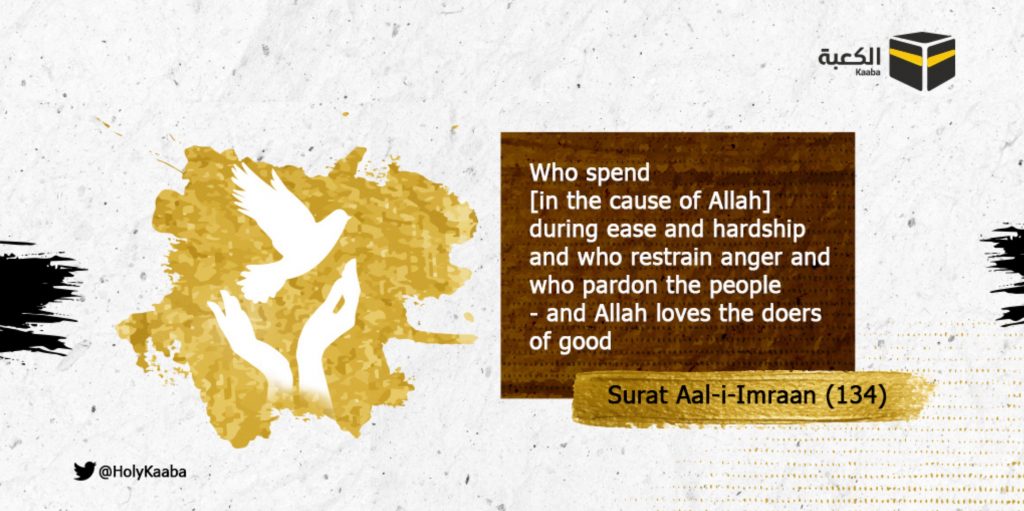The best among you are those who bring greatest benefits to many others.
Dr Suhaib Ashraf Bhat
The Prophet Muhammad (peace and blessings of Allah be upon him) said: “Give charity without delay, for it stands in the way of calamity.” (Al-Tirmidhi)The best among you are those who bring greatest benefits to many others. Charity preached by every religion of the world, is a way of bringing justice to society. And justice is the essence of religion, Islam has therefore made charity that is Zakah, obligatory and binding upon all those who embrace the faith; it has been made into an institution in order to give in permanence and regularity. You know that charity, is the Third Pillar of Islam, a major teaching. Being charitable and providing for the needy are important features of the Muslim character. Why is charity so important?The existence of countless starving, poor, hungry and destitute Muslims and non-Muslims in the world points to the need for this essential teaching to be put into practice. Affluent Muslims may not realize how their wealth could strengthen whole communities. Giving charity correctly is crucial to both the well-being of the needy as well as the ultimate happiness of the wealthy. Prophet Muhammad (peace and blessings of Allah be upon him) emphasized this principle repeatedly.
The one who does not pay zakaah either believes that it is obligatory or he does not. If he does not believe that it is obligatory, then he is a kaafir according to the consensus of the Muslims, because he is denying something that no Muslim has any excuse for not knowing. If he believes that it is obligatory but he does not pay it because he is stingy, then he is not a kaafir according to the majority of scholars, but some of the scholars are of the view that he is a kaafir. Ibn Qudaamah (may Allah swt have mercy on him) said in al-Mughni (2/228): Whoever denies it out of ignorance, and he is ignorant of it because he is new in Islam or because he grew up in a remote area far from the cities, should be informed that it is obligatory and should not be regarded as a kaafir, because he is excused. But if he is a Muslim who grew up in a Muslim land where there are a lot of scholars, then he is an apostate to whom the rulings on apostates apply: he should be asked to repent three times; if he repents, all well and good, otherwise he is to be executed, because the evidence that zakaah is obligatory is clearly stated in the Qur’aan and Sunnah and the consensus of the ummah, and it can hardly be unknown by someone in his situation. If he denies it, that can only be because he is denying the Qur’aan and Sunnah and does not believe in them. If he withholds it although he believes it is obligatory, and the ruler is able to take it from him, then he should take it and punish him (ta’zeer), but he should not take any more than the zakaah that is due, according to the view of the majority of scholars, including Abu Haneefah, Maalik, al-Shaafa’i and their companions. Ishaaq ibn Raahawayh and Abu Bakr ‘Abd al-‘Azeez said: He should take it and half of his wealth. … But if the one who is withholding zakaah is beyond the ruler’s reach, he should fight him, because the Sahaabah (may Allah swt be pleased with them) fought those who withheld it. Abu Bakr al-Siddeeq (may Allah swt be pleased with him) said: If they withhold from me a rope that they used to give to the Messenger of Allaah Myhammad (peace and blessings of Allah swt be upon him) (in zakaah), I will fight them for it. End quote. Shaykh Ibn ‘Uthaymeen (may Allah swt have mercy on him) said concerning zakaah: It is obligatory according to the consensus of the Muslims. Whoever denies that it is obligatory is a kaafir, unless he is new in Islam or grew up in a remote area far from knowledge and scholars, in which case he is excused, but he should be told. If after he is told about it he still denies it, then he is a kaafir and an apostate. As for the one who withholds it out of stinginess and carelessness, there is a difference of opinion among the scholars. Some of them said that he is a kaafir, and this was one of the two views narrated from Imam Ahmad. Others said that he is not a kaafir, and this is the correct opinion, but he has committed a major sin. The evidence that he is not a kaafir is the hadeeth of Abu Hurayrah (may Allah swt be pleased with him), according to which the Prophet Muhammad (peace and blessings of Allah swt be upon him) mentioned the punishment of the one who withholds zakaah on gold and silver, then he said: “until judgement has been passed among all people, then he will be shown his path, either to Paradise or to Hell.” If it is possible that he may be shown his path to Paradise, then he is not a kaafir, because the kaafir cannot be shown his path to Paradise. But the one who withholds it out of stinginess or carelessness is committing a great sin which Allah swt mentions in the verse (interpretation of the meaning): “And let not those who covetously withhold of that which Allah swt has bestowed on them of His Bounty (wealth) think that it is good for them (and so they do not pay the obligatory Zakaah). Nay, it will be worse for them; the things which they covetously withheld, shall be tied to their necks like a collar on the Day of Resurrection. And to Allah belongs the heritage of the heavens and the earth; and Allah is WellAcquainted with all that you do” [Aal ‘Imraan 3:180]“And those who hoard up gold and silver (AlKanz: the money, the Zakaah of which has not been paid) and spend them not in the way of Allah swt, announce unto them a painful torment.35. On the Day when that (AlKanz: money, gold and silver, the Zakaah of which has not been paid) will be heated in the fire of Hell and with it will be branded their foreheads, their flanks, and their backs, (and it will be said unto them:) ‘This is the treasure which you hoarded for yourselves. Now taste of what you used to hoard’” [al-Tawbah 9:34, 35]End quote from Majmoo’ Fataawa al-Shaykh Ibn ‘Uthaymeen (918/14). Those who are careless about paying zakaah should be advised and reminded of how important it is, and should be told of the texts which warn against being stingy in paying it. It was narrated from Abu Hurayrah (may Allah swt be pleased with him) that Prophet Muhammad (peace and blessings of Allah be upon him) said: “Allah said: ‘Spend, O son of Adam, and I shall spend on you.’” Narrated by al-Bukhaari, 5073; Muslim, 993. Prophet Muhammad (peace and blessings of Allah be upon him) said: “The believer’s shade on the Day of Resurrection will be his charity.” (Al-Tirmidhi)On the day when all other shade will be gone, Allah swt will shade and shelter those who give charity and care for the poor. The Muslim’s sacrifice in this life will be their protection on the Day of Judgment.
Suhaibbhatt85@gmail.com




